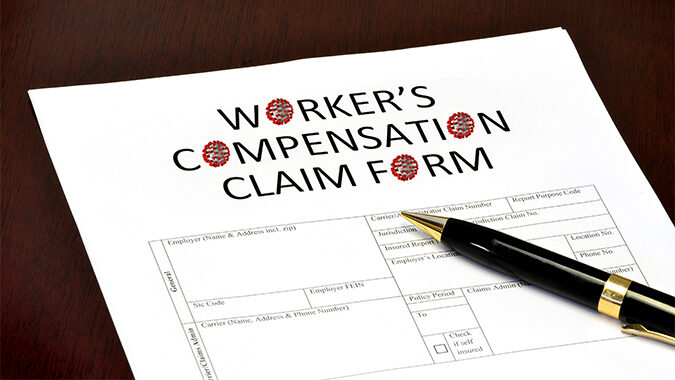When Gov. Phil Murphy reactivated New Jersey’s public health emergency two weeks ago, he also reactivated the legal presumption that an essential workers’ contraction of COVID-19 is work-related – once again leaving employers vulnerable to workers’ compensation claims, even though the virus can literally be transmitted anywhere.
“We are currently in the process of offering the Governor and our policymakers solutions to this situation, as it needs to be addressed sooner rather than later,” said NJBIA Chief Government Affairs Officer Chrissy Buteas. “When the governor issued Executive Order No. 280, we essentially reverted back to the conditions of the public emergency that hadn’t existed since last July 4.
“One of those conditions was that, under a health emergency, an essential employee can claim they contracted COVID-19 at the workplace and an employer is then put in a position to show, by a preponderance of evidence, that an exposure did not occur there.
“As we’ve just gone through a huge omicron surge, where so many people throughout New Jersey and the country tested positive for COVID, it’s important that businesses with essential employees are aware that workers’ comp claims can be filed. And it’s just as important that our policymakers absolve our job creators of yet another vulnerability coming out of the pandemic.”
In September 2020, Gov. Murphy signed bill S-2380, which created a presumption that an essential employee contracted the virus in the workplace during a state of emergency. That law was retroactive to March 9, 2020.
The wide range of employers qualifying as essential, under the law, includes:
- Public safety workers or first responders
- Those involved in providing medical and other healthcare services, emergency transportation, social services, and other care services, including services provided in healthcare facilities, residential facilities or homes
- Those who perform functions which involve physical proximity to members of the public and are essential to the public’s health, safety, and welfare, including transportation services, hotel and other residential services, financial services, and the production, preparation, storage, sale and distribution of essential goods such as food, beverages, medicine, fuel, and supplies for conducting essential business and work at home
- Anyone deemed an essential employee by the public authority declaring the state of emergency
While data isn’t readily available to show how many workers’ comp claims were made by essential employees during the previous state of emergency in New Jersey, they certainly do happen.
Currently, any number of New Jersey law firms solicit essential workers who believe they contracted COVID-19 at work to bring awareness that they are eligible for workers compensation benefits; and that if an essential worker passed away from COVID-19, there are long-term survivor benefits from employers available to their families.
There are also recent media reports of employees faking positive COVID tests to receive workers’ compensation benefits.
“We would encourage employers to do what they have been doing for two years now – stay vigilant in following CDC guidelines to the best of your ability,” Buteas said. “If you want to contest a workers’ compensation claim, it’s currently the employer’s legal obligation in a health emergency to show that exposure didn’t occur at the workplace.”
NJBIA is offering two updated Fast Facts documents to bring more clarity to business owners about workers’ compensation law (A website log-in is required to access the documents):
- COVID-19 Workers’ Compensation Rebuttable Presumption Law
- Understanding New Jersey’s Workers’ Compensation System
NJBIA also continues to offer, through a partnership with Hackensack Meridian Health, an official Healthy Business Certification program for businesses to learn best practices and develop policies and procedures for a healthy and safe workplace. Hundreds of businesses have now been certified through the program.

